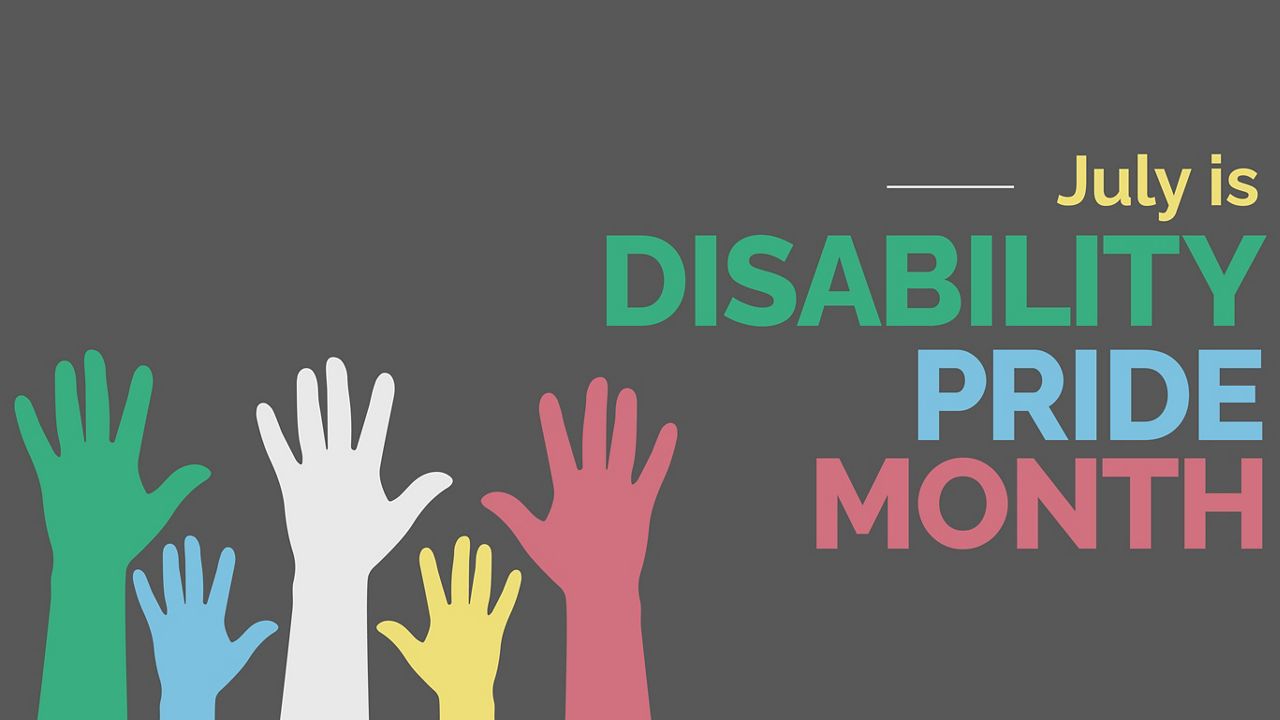July marks the anniversary of the passage of the Americans with Disabilities Act, a major civil rights milestone spearheaded by California Assemblyman Tony Corro. Signed into law in 1990, the ADA prohibits discrimination against people with disabilities in everyday life, including employment, public services and voting. California is home to more than seven million adults with disabilities and schools provide disability services to one in seven students.
On this week’s episode of “In Focus SoCal,” host Tanya McCray meets Isaac Jean-Paul, a Paralympian who competes in track and field in the blind division.
What you need to know California is home to more than 7 million adults with disabilities and provides disability services to 1 in 7 children attending school.
Enacted in 1990, the ADA prohibits discrimination against people with disabilities in everyday activities such as employment, public services, and voting.
In 2017, Isaac Jean-Paul was selected for the Paralympic World Championships team, making his debut in the high jump.
West Covina’s first blind city council member, Ollie Cantos, shares his experience growing up with a disability
As a toddler, Jean-Paul was diagnosed with Juvenile Retinoschisis, a rare congenital condition that left him with just 20% vision. Jean-Paul says this didn’t stop him from pursuing his love of sport.
“Sports was an opportunity for me to feel normal, whereas at school, if I missed a test or my textbook was enlarged, other students would look at me, which made me feel uncomfortable because I just wanted to fit in and read my books like everyone else,” Jean-Paul says. “But when I went out on the field or basketball court, I felt normal. My athletic ability didn’t seem affected by my disability. I could do everything everyone else was doing, only better.”
In 2017, Jean-Paul was selected for the Paralympic World Championships team and made his high jump debut, where he broke the world record three times and won the gold medal. Jean-Paul remains the world record holder in his event. He is involved with Angel City Sports, a non-profit organization in Los Angeles that provides year-round adaptive sports opportunities for children, adults and veterans with physical disabilities. The organization was founded by Clayton Fletch, whose son Ezra was born without a left knee and fibula and only had one finger on his left hand. Ezra received a prosthetic leg at just 11 months old and a running blade at age four.
“I think there’s a common prejudice in society that disabled people aren’t capable in different areas, and honestly, I think adaptive sports, and the Paralympics in particular, is an opportunity to really change how the world looks at disability,” Fleck said.
Ollie Cantos, West Covina’s first blind city council member, also appeared on In Focus SoCal this week to talk about his experience growing up with a disability. Cantos said he was bullied as a child and tried to hide his disability for the first 20 years of his life.
“But later on, I realised it had nothing to do with the disability itself, but rather with what people think about it,” Kantos says. “So I eventually came to accept the fact that I’m blind. Whenever people had myths or misconceptions, I just thought, ‘Oh, that’s them.’ And now, through my words, actions and other efforts, it’s my job to change old stereotypes about disabilities and let people know that we can really contribute to society.”
Kantos also spoke about his experience adopting three blind triplets, whom he met when they were just 10 years old and helped them become independent. In 2017, they became the first blind triplets to become Eagle Scouts.
“We had fun showing the world that anything is possible, and my boys continue to embody that philosophy to this day,” Cantos said.
McCray also met with Long Beach City Council Member Mary Zendejas, who spoke about the city’s efforts to make its buildings more accessible to people with disabilities, including working with local groups to install fire escape chairs in high-rise buildings.
“Downtown has a lot of tall buildings, and people with disabilities worry that one day something will happen and they’ll need an evacuation chair to get to safety without fear,” Zendejas says.
Tune in every Saturday at 11 a.m. and Sunday at 9 a.m. and send us your thoughts at [email protected].

